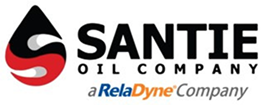When you're doing metal forming work, it's important to make sure that you're using the right specialty lubricants for the job. But with so many different types of metalworking fluids out there, how can you know which lubricant is best for your project? Here's what you need to consider when choosing the right metal forming lubricants.
You're Working with a High-Speed Process
When you're working with a high-speed machine or metal forming process, it's important to make sure you're using a lubricant that can offer a lot in the way of cooling properties. For most high-speed applications, water-based or soluble oil solutions are going to be your best bet. These lubricants can offer excellent cooling benefits for your machinery. The only downside is that they can't offer much in the way of lubricity for your cutting and forming tools. So if you're working with a process that requires high lubrication in order to perform metal forming work accurately, it may be worth considering a different type of lubricant.
You Want to Extend the Service Life of Your Tools
Extending the service life of your metal forming tools is key to making your operation cost-effective in the long run. In order to do this effectively, you'll need to use specialty lubricants that are specifically designed to increase lubricity when you're working with your metal forming equipment. This is an excellent application for oil-based lubricants, which can provide much-needed lubrication that can help keep our equipment running for a long time to come. These lubricants are created with high percentages of pure petroleum, which makes them an excellent option.
You Need the Best of Both Worlds
If you want the best of both worlds in terms of cooling properties and lubricity, then it's a good idea to consider working with synthetic lubricants. These lubricants offer excellent cooling qualities and can be emulsified with water to provide even better lubricity for your equipment. For a cost-effective lubricant solution that offers the best all-around performance, synthetic is usually the way to go.
Have more questions about choosing the best metal forming lubricants? Don't hesitate to reach out today.

